Wall Street on October 29 witnessed a new history being written when Nvidia officially became the first public company in the world with a market capitalization exceeding the $5,000 billion mark. This figure is larger than the gross domestic product (GDP) of economic powerhouses such as Japan, India or the United Kingdom, according to data from the International Monetary Fund (IMF).
This extraordinary milestone not only affirms Nvidia's absolute dominance in the semiconductor industry, but also marks a new chapter in the artificial intelligence (AI) revolution that is reshaping the entire global economy.
“Thirst” for AI chips - the engine of rapid growth
The rise of Nvidia can be described as a Silicon Valley miracle. From a company specializing in designing graphics chips (GPUs) for gamers, Nvidia has transformed dramatically to become the "backbone" of the AI industry. The company's scientists soon realized that the parallel processing architecture of GPUs is extremely effective for training complex AI models.
The real turning point came in late 2022 with the launch of ChatGPT. Generative AI fever exploded around the world , creating an unprecedented “thirst” for Nvidia chips.
Tech giants from Microsoft and Google to emerging startups are racing to own the most advanced H100 and Blackwell processors, considering them a mandatory ticket to the AI race. This huge demand has pushed Nvidia's stock price up 12-fold since ChatGPT's launch.
Nvidia’s dominance is evident in the impressive numbers. It took the company just 41 trading days to increase its market capitalization from $3 trillion to $4 trillion (in July) and another 79 days to reach $5 trillion.
Nvidia shares contributed 18.6% to the S&P 500's gain through the end of September. In addition, nearly a quarter (23%) of global equity funds and ETFs hold Nvidia shares.
CEO Jensen Huang, who co-founded the company and led it for more than three decades, has become a new icon in the technology industry. His fortune is estimated at $177.3 billion, making him one of the 10 richest people on the planet.
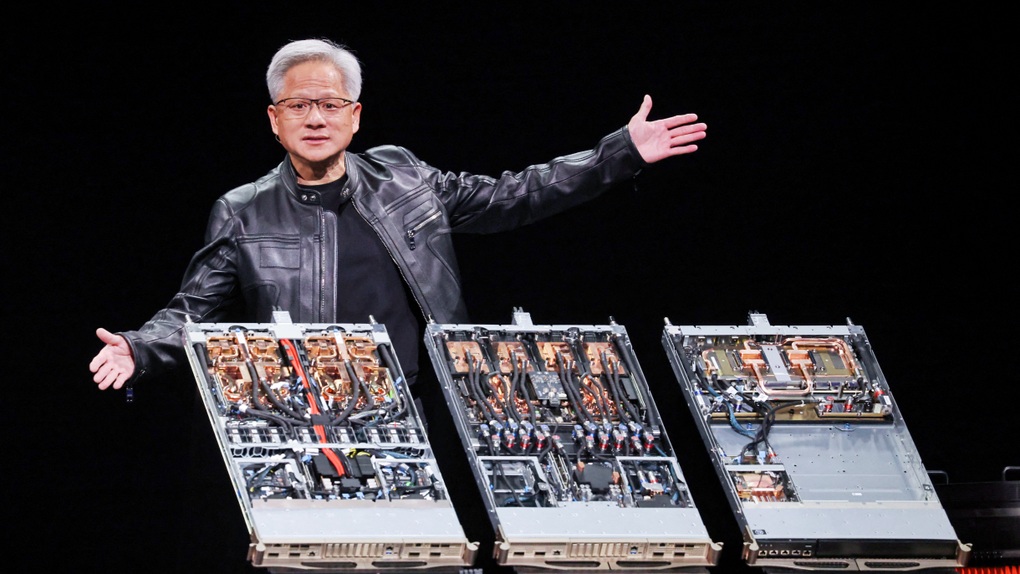
With an estimated fortune of 177.3 billion USD (according to Forbes), Mr. Huang has become the 8th richest person in the world and a new icon of Silicon Valley (Photo: Getty).
When chips are at the center of geopolitics
Beyond the financial sphere, Nvidia’s success has put the company at the center of geopolitical chessboards, particularly the US-China tech rivalry. Its most advanced chips, like the Blackwell line, are considered strategic by Washington, which has imposed tight export controls on them to China.
This makes Nvidia a key link in high-level trade negotiations, and the Blackwell chip line is even expected to be a topic of discussion between US President Donald Trump and Chinese President Xi Jinping during a meeting on the sidelines of the APEC summit.
CEO Jensen Huang himself has been playing the deft role of tech diplomat, praising President Trump’s “America First” policy for boosting domestic tech investment at recent events while warning that cutting China out of the tech ecosystem could cost the US half of its global AI programmers.
Clearly, Nvidia understands that it is not just selling technology products, but also navigating a complex geopolitical environment.
Bubble or wonder? Concerns behind the halo
Nvidia’s meteoric rise and that of the broader AI industry have also raised concerns about a speculative bubble, with the Bank of England and the head of the IMF warning of the risk of tech stocks becoming too inflated and leading to a crash.
“The current expansion of AI relies on a handful of large companies funding each other’s capabilities. If investors start demanding real returns instead of claims of capacity expansion, this growth flywheel could stall,” warned Matthew Tuttle, CEO of Tuttle Capital Management.
Moreover, Nvidia's dominance is not untouchable. Rivals like AMD are trying to compete, and more importantly, Nvidia's biggest customers like Google, Amazon, and Microsoft are also developing their own AI chips to reduce dependence.
“In the long term, major tech companies may look to produce their own chips or find second sources to reduce their dependence,” said Brian Colello, an analyst at Morningstar. “But these efforts, at best, can only weaken, but not replace, Nvidia’s dominant position.”
For now, however, Nvidia remains an unstoppable force. The recently announced $500 billion in chip orders, plans to build seven supercomputers for the U.S. government, and billion-dollar partnerships with Uber, Nokia, and OpenAI show that the Nvidia machine is still running at full capacity.
The next quarterly financial report, expected to be released on November 19, will be the next important test of investor confidence in the $5 trillion empire.
Source: https://dantri.com.vn/kinh-doanh/nvidia-thanh-cong-ty-5000-ty-usd-dau-tien-tren-the-gioi-20251030140915930.htm




![[Photo] Lam Dong: Close-up of illegal lake with broken wall](https://vphoto.vietnam.vn/thumb/1200x675/vietnam/resource/IMAGE/2025/11/03/1762166057849_a5018a8dcbd5478b1ec4-jpg.webp)

![[Photo] General Secretary To Lam receives Singaporean Ambassador Jaya Ratnam](https://vphoto.vietnam.vn/thumb/1200x675/vietnam/resource/IMAGE/2025/11/03/1762171461424_a1-bnd-5309-9100-jpg.webp)
![[Photo] Prime Minister Pham Minh Chinh receives the Chairman of the Japan-Vietnam Friendship Association in the Kansai region](https://vphoto.vietnam.vn/thumb/1200x675/vietnam/resource/IMAGE/2025/11/03/1762176259003_ndo_br_dsc-9224-jpg.webp)





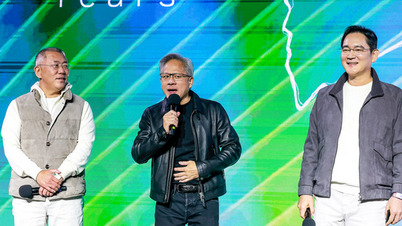

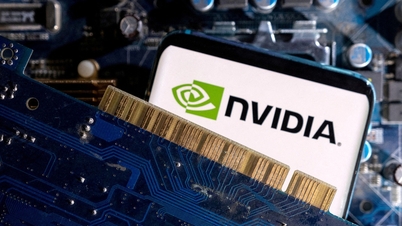
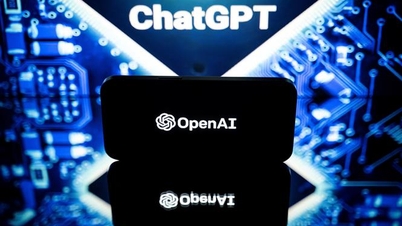

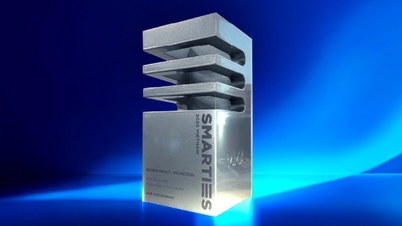
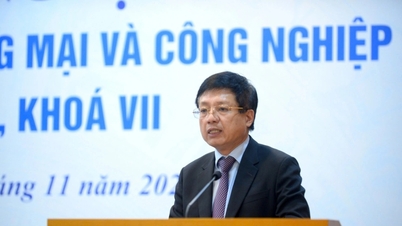











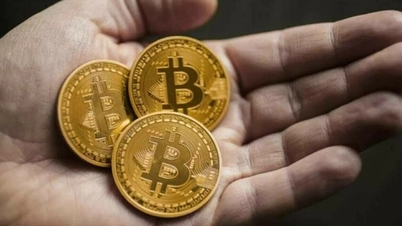









































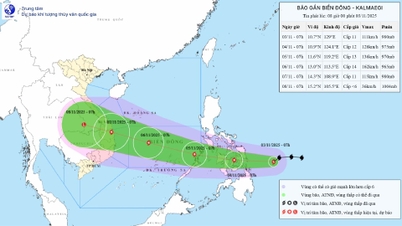


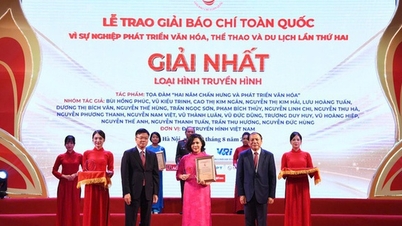



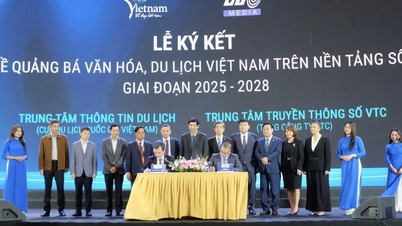








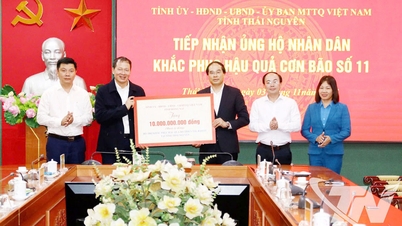

















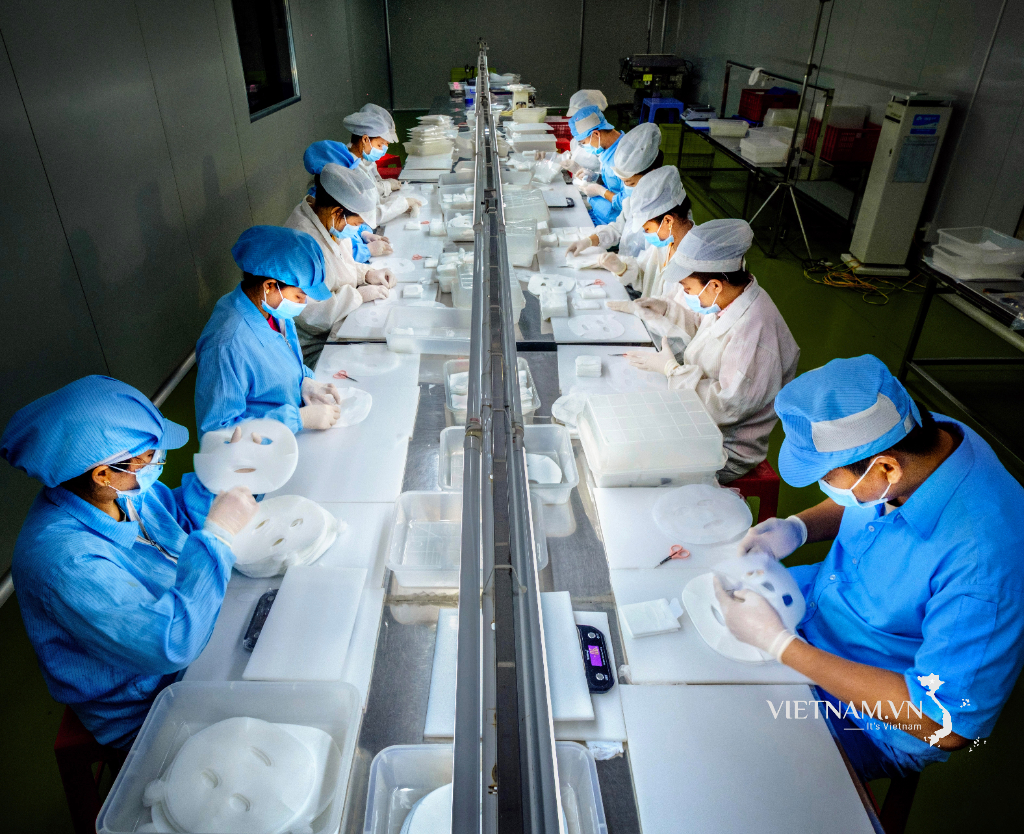



Comment (0)